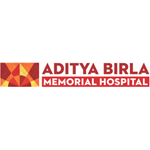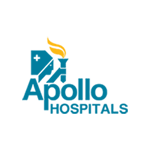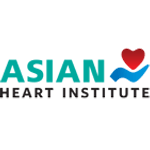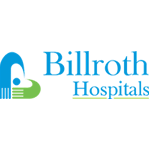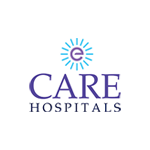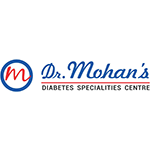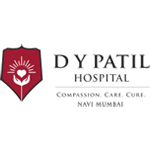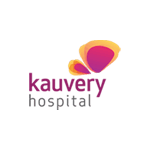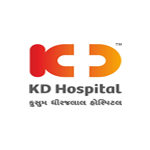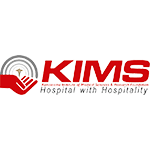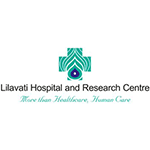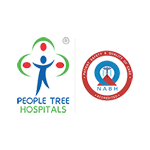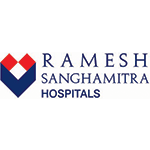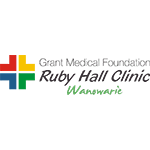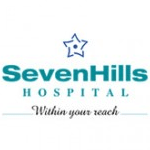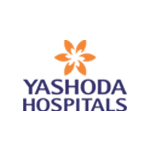Course Description
The emergency medicine specialization is the only specialization that allows you to excel across a wide array of clinical areas in the shortest period of time. Emergency physicians are often celebrated as saviors in a number of critical situations. This course not only allows you to play this critical role but also expands your clinical expertise.
In addition to the online learning, the course also includes an intensive 12-month contact program at a leading corporate hospital to give you a much-needed clinical and hands-on experience on a variety of systemic emergencies. Historically, 95% of Medvarsity students graduating from this program are recruited into the hospital in which they attend their contact program.
This emergency medicine course will enable you to deliver improved medical and surgical care not only in the emergency room but also in the ICU and other areas such as trauma, cardiac, toxicology, and environmental emergencies. Thus, this online course offers exposure to all clinical departments, enabling you to confidently handle cases in a clinical setting.
The curriculum covers medical and surgical emergencies in a system-wise manner. The Fellowship in Emergency Medicine is accredited by the Royal Liverpool Academy, UK, and incorporates a blended learning design. This fellowship course is a foundation course for the Membership of Emergency Medicine and is jointly certified by the Royal Liverpool Academy and Medvarsity.
We at Medvarsity strive to equip every physician with the ability to fast-track their career and enable them to better serve the communities in which they practice. Join us and let us impact healthcare through education.
Optional Simulation Trainings:
-
- Hands-on workshop on Mechanical and Non-Invasive Ventilation
- Practice a complete hands-on training including a variety of case-based scenarios on procedures and treatment protocols of Mechanical and Non-Invasive Ventilation, Intubation, Percutaneous Tracheostomy, etc.
- Click the below link to know more about Simulation Training
Eligibility: MBBS graduates
Course Validity: 13 months. There will be an extra charge for the extension of the course validity.
ENQUIRE NOW to know more about this course
Course Outline
Module 1 – Introduction & Overview
-
- Emergency Medicine Department – Organization of EMD, Organization of Emergency MS, Disaster management
- Legal Aspects of Emergency Medicine – Introduction (Content Edited)**
Module 2 – Airway Management
-
- Airway Management – Introduction
- Mechanical Ventilation – Introduction, Specific Modes of Ventilation, General Classes of Ventilators, Noninvasive ventilation, Weaning
Module 3 – Trauma & Orthopaedics
-
- Trauma Emergencies – General Approach to a Trauma Patient, Traumatic Shock, Hypovolemic Shock, Thoracic Shock, Stab Wounds, Pelvic Trauma, Genitourinary Trauma, Pediatric trauma, Trauma in Pregnancy, Penetrating & Blunt Neck Trauma
- Emergency Department Imaging – Emergency Department Sonography, Diagnostic Imaging in Emergency Medicine
- Neurology in Trauma – Management of Head Injuries, Cerebral Protection in Head Injuries, Spinal Injuries
Module 4 – Orthopedic Emergencies
-
- Types of Orthopedic Emergencies, Fractures, Hand and Wrist Injuries, Hand Injuries, Wrist Injuries, Forearm, Elbow, Upper Arm and Shoulder Injuries, Pelvis, Hip and Femur Injuries, Lower Leg and Ankle Injuries.
- Complications of Orthopedic Injuries, Basic Management of Orthopedic Emergencies
Module 5 – Wounds & Analgesia
-
- Principles of wound management, Methods of wound closure, Local and Regional anesthesia, Bedside anesthesia in emergency department and Pain management
Module 6 – Medical Emergencies
-
- Cardiac Emergencies: Approach To Chest Pain, Cardiogenic Shock, Congestive Cardiac Failure or Acute heart failure, Acute Coronary Syndrome, Syncope and Cardiac Arrhythmias
- Respiratory Emergencies: Acute Respiratory Failure, Asthma and Bronchial Asthma, Chronic Obstructive Pulmonary Disease (COPD), Hemoptysis, Pneumonia, Non-Cardiogenic Pulmonary Edema, Pleural Effusions and Pneumothorax, Mycobacterial Emergencies
- Endocrine Emergencies: Hypoglycemia, Diabetic Ketoacidosis, NKH Coma (Nonketotic Hyperosmolar Coma), Alcoholic Ketoacidosis, Lactic Acidosis, Thyroid Storm and Myxedema Coma, Adrenal Crisis
- Neurological disorders: Altered Mental Status and Coma, CNS Infections, Stroke Emergencies, Anorexia Nervosa and Bulimia Nervosa, Panic Disorder, Depression and Suicide, Septic Shock
- Renal Emergencies: Acid Base Balance and Interpretation of Blood Gas Results, Electrolyte Disorders, Acute Renal Failure, Chronic Renal Failure, Acute kidney injury, Urinary Tract Infections, Urinary Retention
- Gastrological and Hepatic Emergencies: Inflammatory Bowel Disease, Diverticulitis, Hepatitis, Management of Acute Bleeding Esophageal Varices, Liver Cirrhosis
Module 7 – Surgical Emergencies and Transfusion Emergencies
-
- Surgical Emergencies: Abdominal Trauma, Acute Appendicitis, Acute Cholecystitis, Acute Pancreatitis, Anorectal Disorders- Hemorrhoids and Anal fissure, GI Foreign Bodies, Oropharyngeal Foreign Bodies, Rectal Foreign Bodies, Abdominal Aortic Aneurysm [AAA], Acute Mesenteric Ischemia [ AMI ], Intestinal Obstruction, Surgical Emergencies of Bowel, Genital Lesions (Content Edited)**
- Transfusion Emergencies: Blood Transfusion
Module 8 – Obstetric, Gynecologic Emergencies and Pediatric Emergencies
-
- Pelvic Pain, Ectopic Pregnancy, Vaginal Bleeding during Pregnancy, Hypertension in Pregnancy, Emergency Delivery, Vaginitis, cervicitis and Pelvic Inflammatory Disease, Amenorrhea, Sexual Assault
- Approach to Ill Pediatric Patient, Pain, Sudden Infant Death syndrome, Ingested Foreign Bodies, Respiratory Tract Infections, Bronchiolitis, Pharyngitis, Epiglottitis, Pneumonia Syndrome, Otitis Media, Congenital Heart Disease, Kawasaki Disease, Bacteremia, Meningitis and sepsis, GIT Disorders, Intestinal Obstruction, Incarcerated hernia, Pyloric Stenosis, Intussusception, Seizures, Meckel`s Diverticulum, Appendicitis, Status Epilepticus, Child Abuse
Module 9 -Ear and Eye Emergencies
-
- Otolaryngologic Emergencies –Obstruction Due To Foreign Body, Epistaxis, Anterior Epistaxis, Posterior Epistaxis, Nasal Fracture
- Ophthalmic Emergencies – Corneal Abrasion, Glaucoma, Red Eye
Module 10 – Toxicology
-
- Approach to the Poisoned patient
- Antidotes commonly used in Overdoses
- Treatment of Hypotension Associated with Drug Poisoning
- Carbon Monoxide Poisoning
- Illicit Drug & Controlled Substances of Abuse
- Alcohol Withdrawal
- Digitalis Toxicity
- Calcium Channel Blocker Toxicity
- Acetaminophen Hepato-Toxicity
- Salicylate Overdose
- Tricyclic Antidepressant Overdose
- Monoamino Oxidase Inhibitor Overdose
- Arsenic Poisoning
- Cyanide Poisoning
- Iron Poisoning
- Serum Osmolality
- Ethanol Poisoning
- Ethylene Glycol Poisoning
- Poisoning Management
Module 11 – Environmental Emergencies
-
- Environmental Emergencies – Frost bite, Heat Exhaustion & Heat Stroke, High Altitude-Pulmonary Symptoms, High Altitude cerebral Symptoms, Hypothermia
- Burns – Chemical Burns, Electrical Burns, Lightning Burns, Thermal Burns
- Dive Emergencies – Barotrauma, Near Drowning
- Emergency Department Anaphylaxis
- Bee Sting and Insect Bites
- Bites: Animal Bites, Human Bites
- Snake Bite Emergency First Aid Information
Course Description
The emergency medicine specialization is the only specialization that allows you to excel across a wide array of clinical areas in the shortest period of time. Emergency physicians are often celebrated as saviors in a number of critical situations. This course not only allows you to play this critical role but also expands your clinical expertise.
In addition to the online learning, the course also includes an intensive 12-month contact program at a leading corporate hospital to give you a much-needed clinical and hands-on experience on a variety of systemic emergencies. Historically, 95% of Medvarsity students graduating from this program are recruited into the hospital in which they attend their contact program.
This emergency medicine course will enable you to deliver improved medical and surgical care not only in the emergency room but also in the ICU and other areas such as trauma, cardiac, toxicology, and environmental emergencies. Thus, this online course offers exposure to all clinical departments, enabling you to confidently handle cases in a clinical setting.
The curriculum covers medical and surgical emergencies in a system-wise manner. The Fellowship in Emergency Medicine is accredited by the Royal Liverpool Academy, UK, and incorporates a blended learning design. This fellowship course is a foundation course for the Membership of Emergency Medicine and is jointly certified by the Royal Liverpool Academy and Medvarsity.
We at Medvarsity strive to equip every physician with the ability to fast-track their career and enable them to better serve the communities in which they practice. Join us and let us impact healthcare through education.
Optional Simulation Trainings:
- Hands-on workshop on Mechanical and Non-Invasive Ventilation
- Practice a complete hands-on training including a variety of case-based scenarios on procedures and treatment protocols of Mechanical and Non-Invasive Ventilation, Intubation, Percutaneous Tracheostomy, etc.
- Click the below link to know more about Simulation Training
Eligibility: MBBS graduates
Course Validity: 13 months. There will be an extra charge for the extension of the course validity.
Course Outline
Module 1 – Introduction & Overview
-
- Emergency Medicine Department – Organization of EMD, Organization of Emergency MS, Disaster management
- Legal Aspects of Emergency Medicine – Introduction (Content Edited)**
Module 2 – Airway Management
-
- Airway Management – Introduction
- Mechanical Ventilation – Introduction, Specific Modes of Ventilation, General Classes of Ventilators, Noninvasive ventilation, Weaning
Module 3 – Trauma & Orthopaedics
-
- Trauma Emergencies – General Approach to a Trauma Patient, Traumatic Shock, Hypovolemic Shock, Thoracic Shock, Stab Wounds, Pelvic Trauma, Genitourinary Trauma, Pediatric trauma, Trauma in Pregnancy, Penetrating & Blunt Neck Trauma
- Emergency Department Imaging – Emergency Department Sonography, Diagnostic Imaging in Emergency Medicine
- Neurology in Trauma – Management of Head Injuries, Cerebral Protection in Head Injuries, Spinal Injuries
Module 4 – Orthopedic Emergencies
-
- Types of Orthopedic Emergencies, Fractures, Hand and Wrist Injuries, Hand Injuries, Wrist Injuries, Forearm, Elbow, Upper Arm and Shoulder Injuries, Pelvis, Hip and Femur Injuries, Lower Leg and Ankle Injuries.
- Complications of Orthopedic Injuries, Basic Management of Orthopedic Emergencies
Module 5 – Wounds & Analgesia
-
- Principles of wound management, Methods of wound closure, Local and Regional anesthesia, Bedside anesthesia in emergency department and Pain management
Module 6 – Medical Emergencies
-
- Cardiac Emergencies: Approach To Chest Pain, Cardiogenic Shock, Congestive Cardiac Failure or Acute heart failure, Acute Coronary Syndrome, Syncope and Cardiac Arrhythmias
- Respiratory Emergencies: Acute Respiratory Failure, Asthma and Bronchial Asthma, Chronic Obstructive Pulmonary Disease (COPD), Hemoptysis, Pneumonia, Non-Cardiogenic Pulmonary Edema, Pleural Effusions and Pneumothorax, Mycobacterial Emergencies
- Endocrine Emergencies: Hypoglycemia, Diabetic Ketoacidosis, NKH Coma (Nonketotic Hyperosmolar Coma), Alcoholic Ketoacidosis, Lactic Acidosis, Thyroid Storm and Myxedema Coma, Adrenal Crisis
- Neurological disorders: Altered Mental Status and Coma, CNS Infections, Stroke Emergencies, Anorexia Nervosa and Bulimia Nervosa, Panic Disorder, Depression and Suicide, Septic Shock
- Renal Emergencies: Acid Base Balance and Interpretation of Blood Gas Results, Electrolyte Disorders, Acute Renal Failure, Chronic Renal Failure, Acute kidney injury, Urinary Tract Infections, Urinary Retention
- Gastrological and Hepatic Emergencies: Inflammatory Bowel Disease, Diverticulitis, Hepatitis, Management of Acute Bleeding Esophageal Varices, Liver Cirrhosis
Module 7 – Surgical Emergencies and Transfusion Emergencies
-
- Surgical Emergencies: Abdominal Trauma, Acute Appendicitis, Acute Cholecystitis, Acute Pancreatitis, Anorectal Disorders- Hemorrhoids and Anal fissure, GI Foreign Bodies, Oropharyngeal Foreign Bodies, Rectal Foreign Bodies, Abdominal Aortic Aneurysm [AAA], Acute Mesenteric Ischemia [ AMI ], Intestinal Obstruction, Surgical Emergencies of Bowel, Genital Lesions (Content Edited)**
- Transfusion Emergencies: Blood Transfusion
Module 8 – Obstetric, Gynecologic Emergencies and Pediatric Emergencies
-
- Pelvic Pain, Ectopic Pregnancy, Vaginal Bleeding during Pregnancy, Hypertension in Pregnancy, Emergency Delivery, Vaginitis, cervicitis and Pelvic Inflammatory Disease, Amenorrhea, Sexual Assault
- Approach to Ill Pediatric Patient, Pain, Sudden Infant Death syndrome, Ingested Foreign Bodies, Respiratory Tract Infections, Bronchiolitis, Pharyngitis, Epiglottitis, Pneumonia Syndrome, Otitis Media, Congenital Heart Disease, Kawasaki Disease, Bacteremia, Meningitis and sepsis, GIT Disorders, Intestinal Obstruction, Incarcerated hernia, Pyloric Stenosis, Intussusception, Seizures, Meckel`s Diverticulum, Appendicitis, Status Epilepticus, Child Abuse
Module 9 -Ear and Eye Emergencies
-
- Otolaryngologic Emergencies –Obstruction Due To Foreign Body, Epistaxis, Anterior Epistaxis, Posterior Epistaxis, Nasal Fracture
- Ophthalmic Emergencies – Corneal Abrasion, Glaucoma, Red Eye
Module 10 – Toxicology
-
- Approach to the Poisoned patient
- Antidotes commonly used in Overdoses
- Treatment of Hypotension Associated with Drug Poisoning
- Carbon Monoxide Poisoning
- Illicit Drug & Controlled Substances of Abuse
- Alcohol Withdrawal
- Digitalis Toxicity
- Calcium Channel Blocker Toxicity
- Acetaminophen Hepato-Toxicity
- Salicylate Overdose
- Tricyclic Antidepressant Overdose
- Monoamino Oxidase Inhibitor Overdose
- Arsenic Poisoning
- Cyanide Poisoning
- Iron Poisoning
- Serum Osmolality
- Ethanol Poisoning
- Ethylene Glycol Poisoning
- Poisoning Management
Module 11 – Environmental Emergencies
-
- Environmental Emergencies – Frost bite, Heat Exhaustion & Heat Stroke, High Altitude-Pulmonary Symptoms, High Altitude cerebral Symptoms, Hypothermia
- Burns – Chemical Burns, Electrical Burns, Lightning Burns, Thermal Burns
- Dive Emergencies – Barotrauma, Near Drowning
- Emergency Department Anaphylaxis
- Bee Sting and Insect Bites
- Bites: Animal Bites, Human Bites
- Snake Bite Emergency First Aid Information

